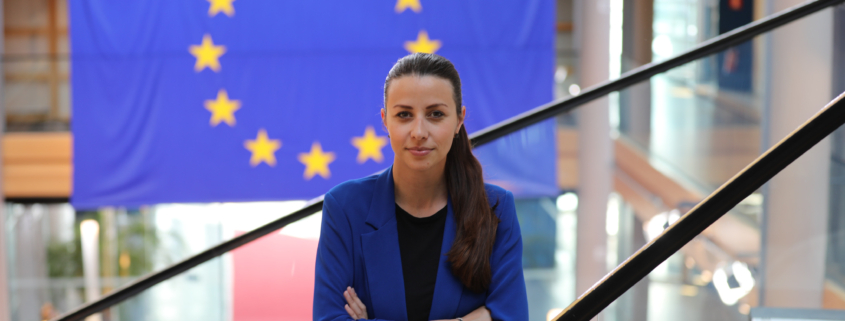That’s how it is. Either there’s a legal obligation or forget it, because “we are not obliged to”.
This is how foreign multinationals operate on the EU market, including Slovenian. Which is why we don’t have any other choice.
For some time now, we have been holding informal talks with the European Commission on how to regulate the prohibition of linguistic discrimination at the EU level. As of today, these talks have become formal.
In the absence of such prohibition, things will either progress too slowly or not at all. For that reason, I have today called upon the relevant European Commissioners to act, i.e. to revise and complement the Audiovisual Media Services Directive.
The Directive already provides for better access to audiovisual services and content for people with special needs and prohibits discrimination. However, since the text does not explicitly prohibit discrimination on the basis of language for all citizens, it is unfortunately open to interpretation. I therefore propose explicit, clear obligations for platforms offering video content, which are present on the European Union market: that they respect all the official languages of the European Union, provide improved access to services for the general population, and put an end to the misuse of the so-called country of origin principle in order to sidestep national legislation.
The European Union is committed to strengthening, promoting and maintaining linguistic diversity, and any language-based discrimination is prohibited by the Community’s fundamental treaties. I argue that this principle should also be respected by all private companies operating on the EU internal market and offering services throughout the EU, while the EU has a duty to clearly establish this in its legislation.
To be frank, respect for linguistic diversity is a bare minimum that should be self-evident. At a time when the internet plays an increasingly important role in our daily lives, we must all work together to ensure that all EU languages are treated equally, as this is essential for their survival and continued existence, including for Slovenian.
The legislative process in the European Union is usually lengthy, but this does not mean that we should sit idly by and wait forever for multinationals to move, which they will not do without concrete, especially legislative pressure. I am convinced, including on the basis of the informal talks we have had so far, that we will be able to regulate these matters at EU level in the foreseeable future.
In the meantime, we are still collecting signatures of support at www.poslovensko.si
– Irena




Leave a Reply
Want to join the discussion?Feel free to contribute!